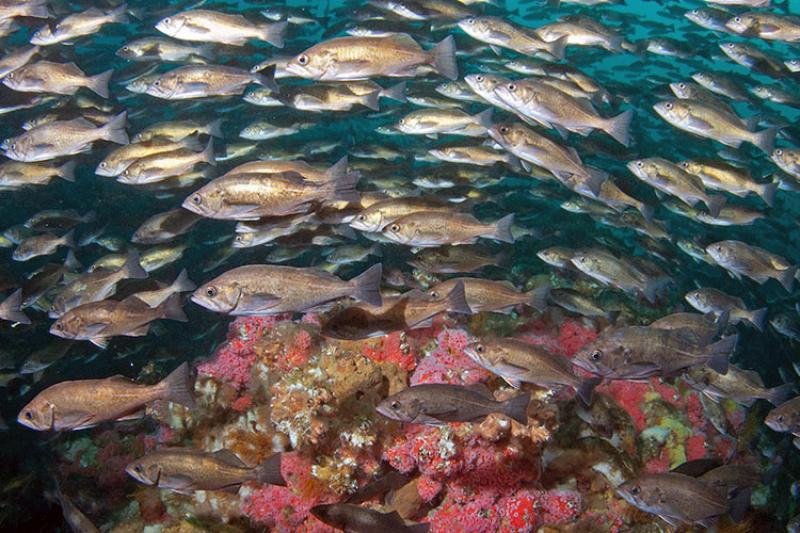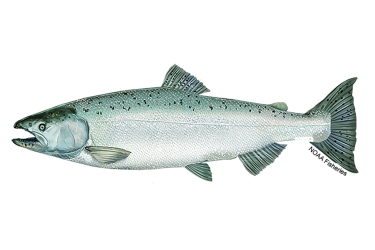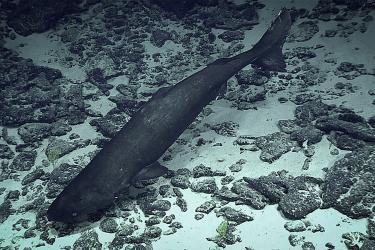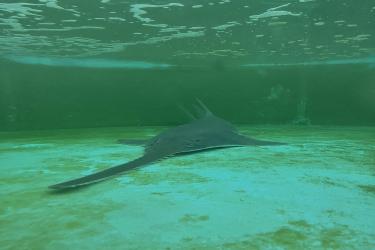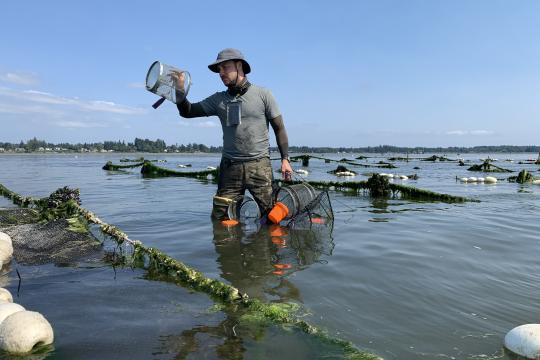What do a fisheries scientist, a seal veterinarian, and a whale acoustician have in common? They are all recipients of one of the most prestigious awards given to scientists early in their careers.
President Donald Trump announced the recipients of Presidential Early Career Awards for Scientists and Engineers on July 2. Awardees included NOAA Fisheries scientists Dr. Elizabeth Siddon (Alaska Fisheries Science Center), Dr. Michelle Barbieri (Pacific Islands Fisheries Science Center), and Dr. Melissa Soldevilla (Southeast Fisheries Science Center). Additionally, five NOAA scientists in the Office of Oceanic and Atmospheric Research were honored. All award recipients will receive their awards at a ceremony on July 25 in Washington, DC.
The awards recognize exemplary efforts in the field of science and technology and represent the highest honor bestowed by the U.S. Government to outstanding scientists and engineers beginning their independent research careers.
“I’m very proud of our award recipients and all their impressive accomplishments,” NOAA Fisheries Assistant Administrator Chris Oliver said. “They’ve become some of the most respected members of their field in only a short amount of time, and they embody the core values and goals of NOAA Fisheries, both in the workplace and in their communities.”
Meet the NOAA Fisheries award winners:
Dr. Elizabeth Siddon – Alaska Fisheries Science Center
She is a nationally recognized expert in Bering Sea ecosystems and regularly offers her expertise through lectures and courses at universities around the country, in addition to mentorship programs in Alaska. Dr. Siddon also serves as the statewide parent representative on the Alaska Early Childhood Coordinating Council and an elected member of the Juneau School District Board of Education.
Siddon said of her award: “I’m extremely honored to be recognized and thankful to everyone who has supported me! It’s exciting to work at NOAA Fisheries. With all that is going on in the Alaska marine environment right now, the work that we are doing to provide ecosystem context for resource management decisions is really important. And just as important is that we do a good job explaining our science and communicating with the public. That is what motivated me to co-found SouthEast Exchange, a community partnership of scientists and teachers, and to become a member of Juneau's Board of Education. For me it’s about helping students see how the science they are learning in school is applied in the real world. In doing so, I hope to inspire a few of them to pursue careers in science.”
Dr. Michelle Barbieri – Pacific Islands Fisheries Science Center

Dr. Barbieri has played an integral role in expanding emergency response efforts in the Pacific Islands region. Partnerships formed with the federal government, State of Hawaii, and local communities have proven very beneficial, nearly doubling the number of trained emergency response staff available to treat injured or ill marine mammals and turtles.
“My career is focused on protecting marine animals, yet much of what I really do is centered around people,” Barbieri said. “I am honored to work with a passionate group of colleagues, volunteers, and members of the community, and I share this honor with each of them. I also want to acknowledge my incredibly supportive husband and family, and the passionate and dedicated marine mammal scientists who have inspired and mentored me along the way.”
Dr. Melissa Soldevilla – Southeast Fisheries Science Center

Soldevilla is part of a global community of acoustics experts working to advance this emerging field. Through collaborative efforts, she and partners have helped characterize ship traffic in critical North Atlantic right whale calving habitats, ocean soundscapes and fish spawning behavior, and measure impacts of ocean noise levels on marine mammals. She is a highly sought mentor in the field of passive acoustics and has trained and collaborated with many students at the undergraduate, graduate, and Ph.D. levels.
“It is such an honor to receive this award for doing work that I'm passionate about,” Soldevilla said. “Marine mammals can be challenging to study in the wide-open ocean and I love applying new methods like passive acoustic monitoring to improve our understanding of these species. New information improves our ability to assess if their populations are thriving or declining and what we can do to help reduce any impacts of human activities.
Working at NOAA Fisheries provides me with exciting opportunities to study the distribution of the endangered Gulf of Mexico Bryde's whale and North Atlantic right whale and the potential threats that may be impacting them. I am especially thankful to the amazing team throughout NOAA Fisheries and the Southeast Fisheries Science Center, and my collaborators, students and volunteers whose support make this work possible and share this honor.”
NOAA Fisheries’ Chief Science Advisor Dr. Cisco Werner said these awards are a testament to all the efforts made by NOAA scientists and our partners. “These three scientists have already accomplished so much in their young careers and they show great promise for the future,” Werner said. “We are very excited to recognize them for their outstanding contributions to science and will watch in anticipation as they continue to advance our understanding of the marine resources we manage and protect.”
